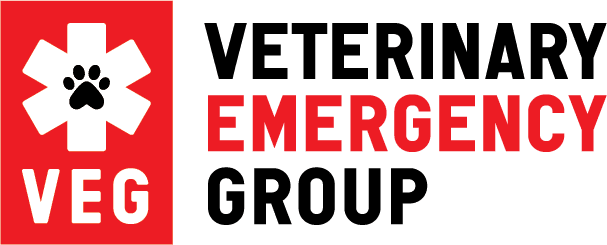
Top 8 Reasons to Visit the Emergency Vet
Dr. Lisette Lewis
Call & Speak with a doctor Open 24/7, Even Holidays!
Walk in today for:
Emergencies
Point-of-Care Ultrasound
Urgent Care
X-Rays
Diagnostics + Testing
End-of-Life Care
Surgery
Treatment + Hospitalization
Pet emergencies are, by nature, unpredictable. While we try as pet parents to reduce all dangers for our pets, they are incredibly curious and resourceful, sometimes to the point of putting themselves in harm’s way. They may snag the chocolate we left on the counter, consume a sock or escape from the backyard. While we can never truly be prepared for an emergency vet visit, it’s important to know in which situations your pet requires emergency care.
Not all pet emergencies are obvious and it can be hard to judge whether your pet needs immediate attention or you can wait till the morning when your regular vet is open. That’s why we’ve gathered some of the most common pet emergencies we see at VEG, so you can be better informed about what a pet emergency is and how to respond. If you’re unsure if you should be seen, call a VEG near you and an emergency doctor will answer your medical question and help you decide if you should be seen right away.
Check out our list of common pet emergencies seen at VEG.
1. Acute Vomiting and/or Diarrhea
When your cat or dog suddenly starts vomiting or passing loose stools, it can be a sign of an underlying condition that should be treated right away. Some of the causes can be life-threatening, so it’s important your pet sees an emergency vet as soon as possible.
Reasons cats and dogs have acute vomiting or diarrhea include:
- Dietary indiscretion
- Foreign body gastrointestinal obstruction
- Parvovirus
- Intestinal parasites
- Toxin ingestion
- Pancreatitis
- Kidney or liver disease
- Addison’s disease
2. Ingestion of a Toxic Substance
Unfortunately, toxin ingestion is a common reason pets visit the emergency veterinarian. Pets are quick to eat an entire chocolate cake while your back is turned and are happy to ingest grapes given to them by their unknowing owners! As soon as you realize your pet has ingested a toxic substance you should bring them to a veterinarian. If identified within the first few hours of ingestion your veterinarian can induce vomiting to try to decrease the amount of the toxic substance that is absorbed. Pet toxicities have a wide range of clinical signs but can result in vomiting, diarrhea, lethargy, seizures or hyperactivity.
The most common pet toxins include:
- Household plants such as Lilies
- Grapes or raisins
- Foods containing Xylitol
- Chocolate
- Non-steroidal anti-inflammatory medications
- Acetaminophen
- Recreational drugs like marijuana
- Rodenticides
3. Traumatic Injuries Such as Being Hit by a Car
Cats and dogs don’t understand the dangers of the road. They trot across with what seems like reckless abandon, especially if they are hot on a scent or otherwise distracted. As such, car accidents are a frequent cause of emergency vet visits. If your pet is hit by a car, take care when moving them, as they may have sustained injuries that could be exacerbated if not handled correctly. The best way to move your pet is to slide them gently onto a flat surface such as a plastic lid to a bin or even a taut towel.
4. Urinary Tract Obstruction
This emergency is most commonly seen with male cats rather than female cats due to their long and narrow urethra. Indoor, overweight male cats that are exclusively fed a dry food diet are at a higher risk for developing this problem. This condition can quickly become life-threatening, so bring your cat to the emergency vet if you notice these symptoms:
- Straining to urinate
- Vomiting
- Going in and out of the litter box
- Excessive grooming of the urogenital area
- Vocalization while in the litter box
- Lethargy or restlessness
5. Eye Injuries
Cats and dogs can easily sustain an injury to the eyes, especially brachycephalic breeds such as pugs with prominently exposed eyeballs. They are unable to remove irritants from their eyes and foreign material can result in a painful ulcer. If your pet has excessive discharge, redness, squinting or is rubbing their eyes on the carpet or with their paws they should be seen by a veterinarian right away.
6. Lacerations or Bite Wounds
Lacerations and bite wounds in cats and dogs can happen during a playful romp with their dog park friends, during a hike in the woods or from an encounter with a wild animal. Wounds can become infected if they are not cleaned, flushed and sometimes sutured closed. Your pet will likely need antibiotics and pain medications so immediate veterinary attention is ideal.
7. Difficulty Breathing
Any change in your pet’s breathing is concerning and should be evaluated by a veterinarian right away. Difficulty breathing can be the result of heart disease, asthma, pneumonia, fluid around the lungs or an obstruction of the upper airway. If you notice your pet is breathing rapidly, coughing, stretching their head and neck out to breathe or has abnormal gum/tongue color (blue, pale, gray) visit an emergency veterinarian immediately.
8. Ingested Foreign Object
Cats and dogs have been known to eat just about anything. Puppies are especially prone to swallowing inedible objects. Foreign objects can cause serious damage to the stomach and intestinal tract and can be fatal if left untreated. Surgery or endoscopy is typically required for removal of the foreign object. Common items dogs swallow include toys, rocks, clothing and corn cobs. Cats often swallow items such as string, hair ties and small toys.
Why Choose VEG as Your Emergency Veterinarian?
At all of our VEG locations, we’re open after-hours on weekdays and 24-hours on the weekends and holidays to serve you when your regular veterinarian can’t. Some of our locations are even own 24/7. We approach emergency veterinary medicine differently and focus on what matters: your bond with your pet.
Here’s what makes us different:
- Whether you call or walk in, you’ll talk to a vet right away, even before you fill out paperwork
- We don’t pull your pet away from you for treatment. You’re allowed to be with them through it all.
- Our vets and staff care for pets on their level—we get down on the floor and examine them where they are most comfortable and least stressed.
If your pet has an emergency situation, trust VEG. Find your nearest VEG location.

